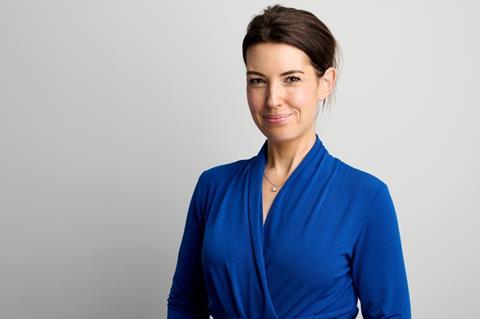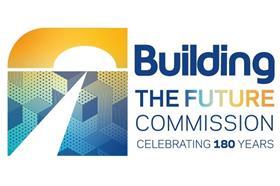Research shows men and women’s experience of mentoring is very different – this is what has been missing

The recent Budget announcements relating to childcare saw a critical issue relating to gender equality being placed at the top of the national political agenda. For the 86% of women in the UK who are mothers, this policy prominence is long overdue. For those without children, the political emphasis on childcare can and should be seen as the trojan horse from which we can begin meaningful discussions and make practical progress on all multiple issues affecting gender equality.
At a business level, and within the built environment industry, there is significant opportunity for improvement in gender equality – with regards to the composition of senior leadership in particular. The benefits of balanced leadership are well documented; Curtin Business School for example reports an increase of 10% or more of female representation in executive roles directly leads to a 6.6% increase in a business’ market value – equivalent to £57m for the average company.

Current progress is mixed; Real Estate Balance’s 2022 diversity equality & inclusion report showed gender balance at board level improved from 20-30% from 2016-20 but has been flat out declining since 2020. Furthermore, McKinsey’s Women in Business Report 2022 shows that senior women are currently leaving their jobs at an unprecedented rate – for every woman promoted to director level, two are leaving – meaning companies are struggling to hold onto the few senior women they do have.
What can be done? Many businesses are taking steps to improve their gender balance. Mentoring schemes for example are a popular intervention but must be properly positioned to effect actual change. The fact remains that women are over mentored and under promoted. Women tend to hold themselves to higher account than men and are typically harsher critics of their own performance. As such they are quick to put their hands up for any development opportunities. Businesses will not therefore struggle to attract female mentees, but without careful management they will fail to see any impact of this mentoring on their senior talent pipeline.
Male mentees will typically receive guidance on critical business skills, whereas women are given advice on improving their confidence or impact
Research suggests that men and women are subconsciously mentored very differently. Male mentees will typically receive guidance on critical business skills, whereas women are given advice on improving their confidence or impact. It is fair to argue that this is what female mentees ask for support with, but it’s important we start to challenge the root of these requests.
Confidence is defined as “a feeling of self-assurance arising from an appreciation of one’s qualities or knowledge”. Women often feel lacking in confidence precisely because of a lack of exposure or expertise in business, financial and strategic skills, which can lead to an inbility to make a meaningful contribution in these areas. If these leadership skills are developed, confidence in role will also be enhanced. This is what has been termed “the missing 33%” in the career success equation for women. It is a phrase coined by the researcher Susan Calantuono who argues the lack of focus for women on building business, strategic and financial acumen is contributing to gender inequality at a senior level.
As important as what is discussed during mentoring sessions is how mentoring schemes are positioned within an organisation. For many big businesses, mentoring schemes are online, with mentors and mentees uploading profiles and being matched accordingly. Limited guidance is given regarding expectation setting or relationship chemistry. To maximise success, alongside the many smaller details, a willingness to mentor or to ask for mentoring should be positively recognised in an individual’s development conversations and expectations should be set for how a mentor can and should support their mentees’ career journey.
>> Also read: Mentoring Circle: Building up women in the built environment
The term sponsorship refers to what naturally occurs when a senior has made a genuine connection with a junior and they make introductions for that junior, put them forward for key projects or roles, share their successes in critical forums and pitch for them in talent planning environments. Research shows that this progression from mentoring to sponsorship happens in the majority of cases for male mentees, but much less frequently for women. For mentoring schemes to have quantifiable impact on gender equality in leadership, there must be a clear link made to sponsorship. If the mentor does not feel inclined to do this for their mentee, this is a clear sign of a lack of connection in the mentee/mentor relationship.
Mentoring is one small part of a hugely complex and integrated puzzle when it comes to advancing women’s leadership prospects. But every piece is critical to the overall picture, and with small tweaks and proper positioning individuals and businesses could start to reap benefits from mentoring that go far beyond a Diversity and Inclusion tick box.
Ceri Moyers is director of Mentoring Circle and founder of Clarity Consulting
The Building the Future Commission

The Building the Future Commission is a year-long project, launched to mark Building’s 180th anniversary, to assess potential solutions and radical new ways of thinking to improve the built environment.
The major project’s work will be guided by a panel of 19 major figures who have signed up to help guide the commission’s work culminatuing culminate in a report published at the end of the year.
The commissioners include figures from the world of contracting, housing development, architecture, policy-making, skills, design, place-making, infrastructure, consultancy and legal. See the full list here.
The project is looking at proposals for change in eight areas:
- Education and skills
- Energy and net zero
- Housing and planning
- Infrastructure
- Building safety
- Project delivery and digital
- Workplace culture and leadership
- Creating communities
>> Editor’s view: And now for something completely positive - our Building the Future Commission
>> Click here for more about the project and the commissioners
Building the Future will also undertake a countrywide tour of roundtable discussions with experts around the regions as part of a consultation programme in partnership with the regional arms of industry body Constructing Excellence.
You can follow our progress using #BuildingTheFuture on social media and you can get involved by sending submission to the commission through our Ideas Hub.



























No comments yet